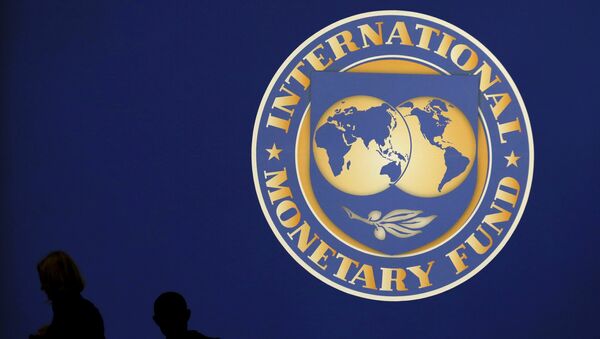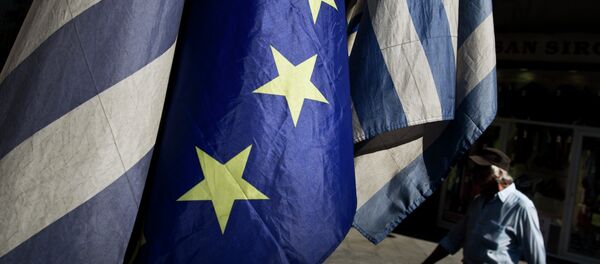"I worry a lot about the strong trend in Europe to pull back from market integration," he told AFP, adding that the recent mass migration of people to Europe was leading many to call for new restrictions to be enforced."
"One factor is the refugee crisis, where there's a lot of pressure on open borders and workers' mobility. There is a lot of political pressure coming from the extremes, which could undo a lot of the economic integration that has occurred."
Brexit — 'Obvious Threat' to EU Economy
Obstfeld said along with the refugee crisis, other factors were placing pressure on the bloc, with "Britain wanting to possibly leave the European Union" an obvious threat to what he believes is the most effective way forward in the EU's economic recovery.
Syria to Europe, through the Sahara? via @irinnews https://t.co/FrVDdDTzCK pic.twitter.com/IgxTvsXSQW
— Eurasia Group (@EurasiaGroup) November 10, 2015
While Obstfeld, along with countries inside the single currency Eurozone, such as Germany and France, have pushed for greater European integration, Britain has resisted such calls, fearing that as a non-euro member of the EU, the Eurozone may vote against it in the likelihood of further economic integration.
As a result, UK Prime Minister David Cameron has called for Brussels to officially recognize the EU as a "multi-currency" area in an attempt to protect the City of London's status as Europe's financial center.
Cameron has also called for an end to the obligation of EU member states to forge an "ever closer union."
Today I'll set out the objectives of the renegotiation of Britain's membership of the EU. Substantial change isn't Mission Impossible.
— David Cameron (@David_Cameron) November 10, 2015
While this measure refers to a push against political integration, there are concerns among some Europhiles that it could set a precedent and lead many more Euroskeptic movements to push to break or loosen ties with Brussels.
General Brussels Backlash
While experts are pushing for greater integration on a market and political level, these calls seemingly go against the recent anti-EU backlash experienced in many countries as a result of Brussels' handling of recent issues.
Ministerial meeting earlier today to discuss key issues, such as #Eurogroup & #refugeecrisis, among others #Greece pic.twitter.com/wCIP5f50WD
— Alexis Tsipras (@tsipras_eu) November 10, 2015
Although the Greek debt crisis highlighted calls for great Eurozone economic integration, it also left many member states within the bloc divided and disillusioned with the treatment of Greece's Syriza government, which was threatened with expulsion from the single currency unless its backtracked on its demands and accepted harsh austerity measures in order to unlock another bailout.
These divisions widened with the ongoing refugee crisis.
While Germany and Sweden have led calls for member states to accept refugee quotas, others such as Denmark and Hungary have angrily refused, with Budapest publicly criticizing Germany's approach to the issue.
With leaders unable to come to a conclusion on how to effectively manage such matters, many Euroskeptic groups have gained popular support.
This has occurred in Portugal, where a Leftist coalition consisting of some fiercely anti-EU parties has just taken control of the country, highlighting the current state of disillusionment with Brussels.
The different opinions of many member states, along with criticism of the EU's handling of recent crises has led many to criticize the legitimacy of the EU as an institution, and has given rise to more anti-EU sentiment and a rejection of calls for more integration generally.




